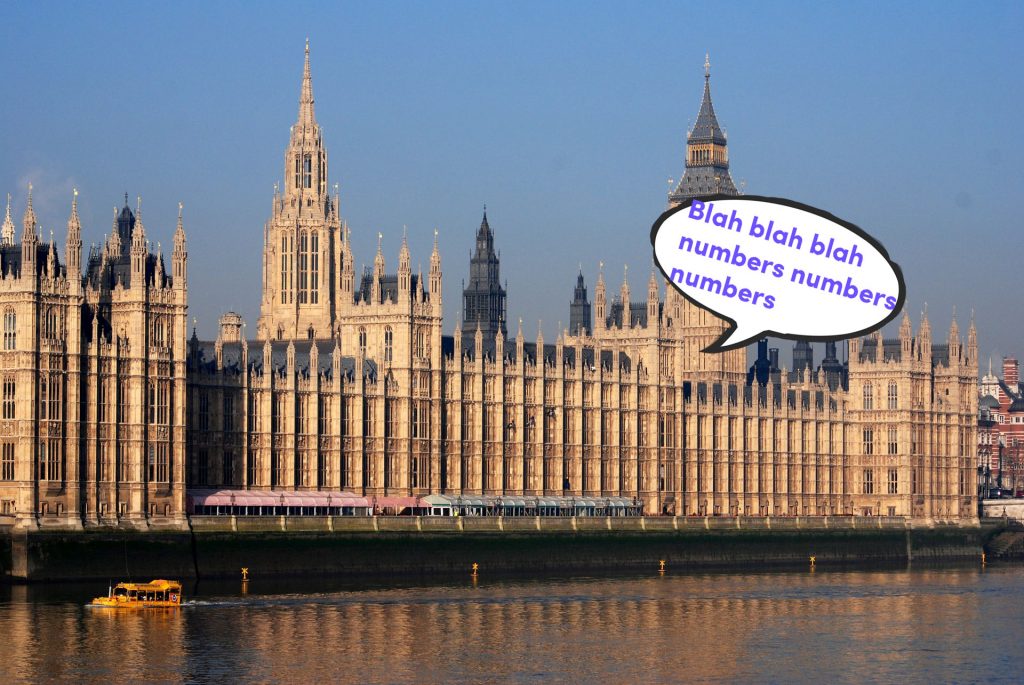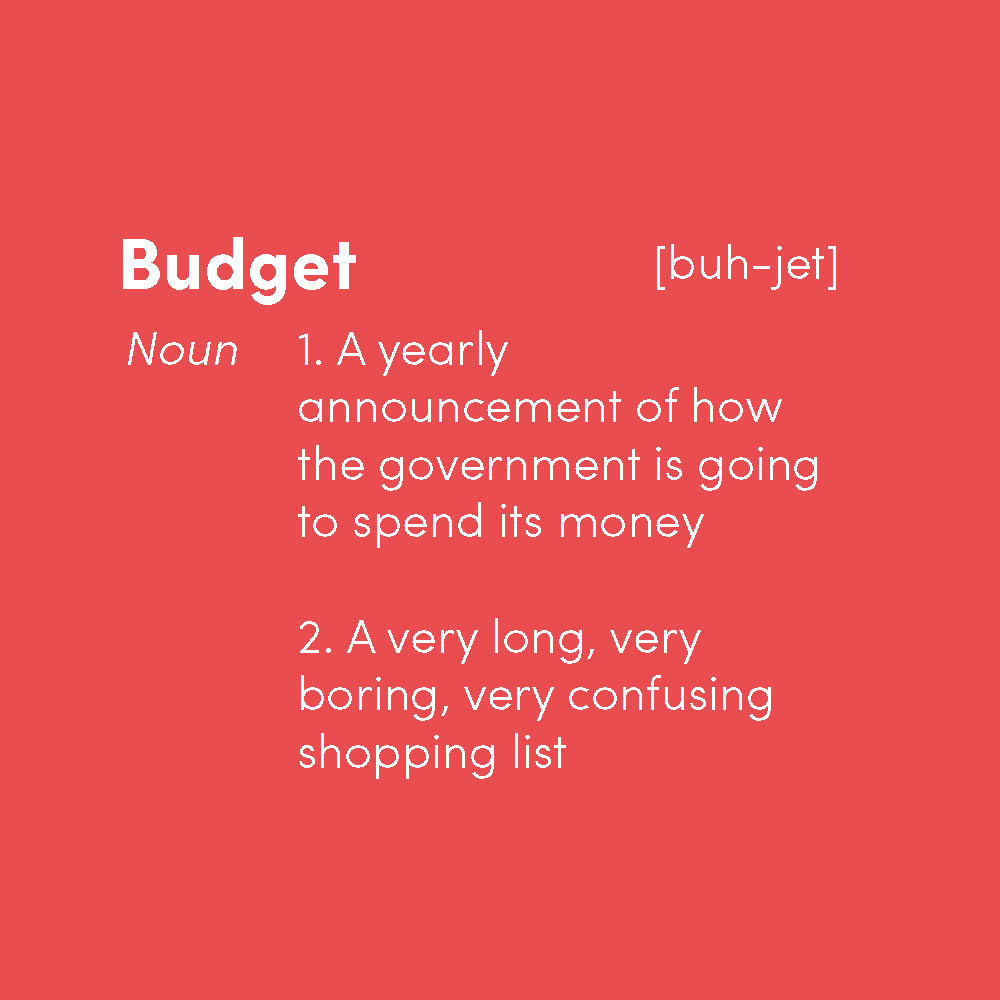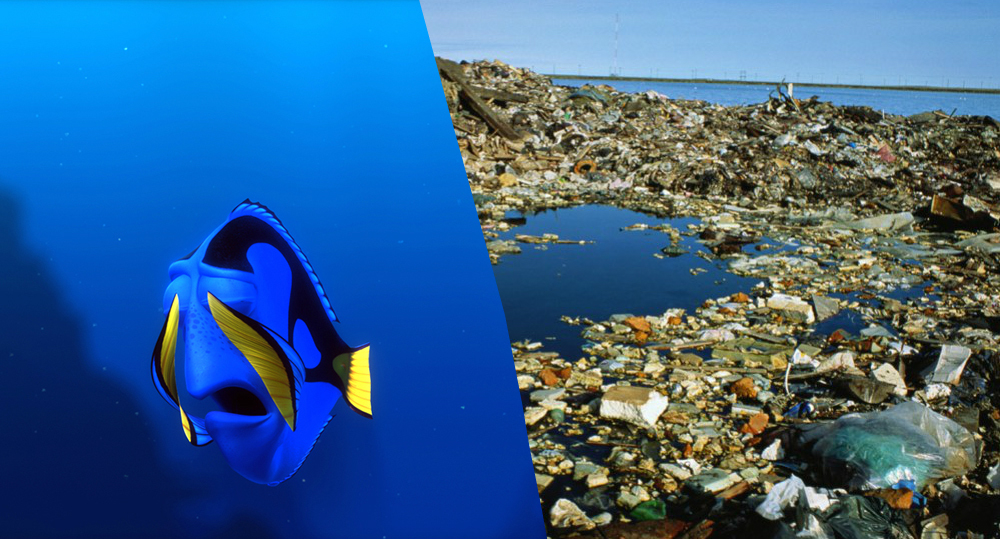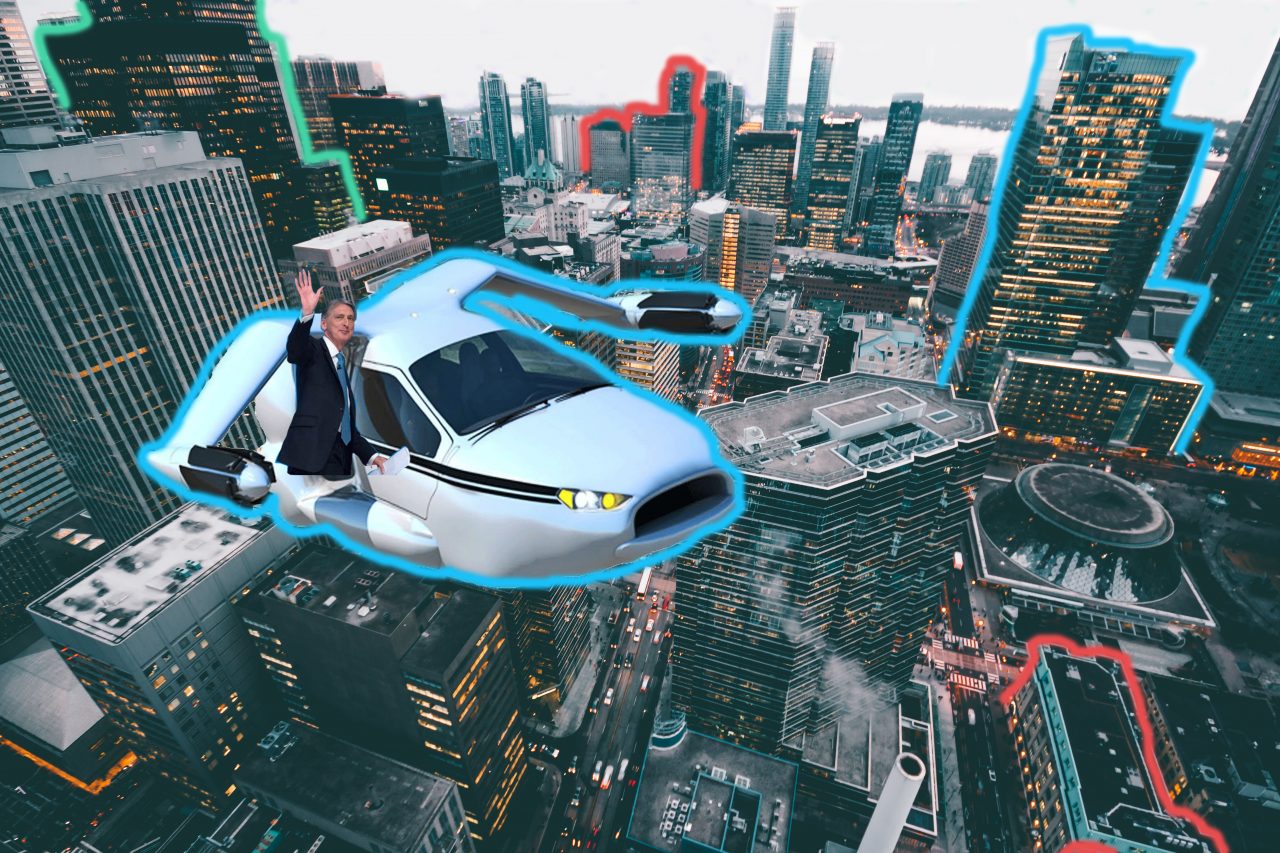
FYI: You’re supposed to be happy about this Stamp Duty thing
Every budget needs it's rabbit-out-of-the-hat.
This budget, it was housing. First-time buyers will now pay no tax if they buy a house under the value of £300,000. It’s great news for first time buyers, and will save them £5,000. It’s something that we (the millennials) are supposed to be happy about. But unless you’re nearing a point where you’ve saved enough to buy a £300,000 house, it probably doesn’t mean that much to you... in fact, you probably never would have heard of the word Stamp Duty before. And if you still can't afford to buy a house, you'll never see that £5,000.

What else did we learn this afternoon? The economy isn't as fast as they'd like, there are 1.4 million unemployed people in the UK (rather than 0 unemployed people in the UK, as the chancellor very strangely said over the weekend), and the government is paying an extra £5 billion to help ease the people struggling with its new Universal Credit scheme (which was supposed to save money). Here's our picks of the main points.
Building houses is the answer to all our problems
Housing was one of the big points the chancellor made in his speech. “House prices are increasingly out of reach for many. It takes too long to save for a deposit. And rents absorb too high a portion of monthly income.
"The number of young people owning their own home has dropped from 59% to 38%", he said.
And the answer to that, apparently, is to build. He promised an extra 300,000 new homes in the UK.
The idea is that the more homes there are, the less demand there will be, so prices will go down. He’s also promised money for building more homes for private renting, which should have a similar effect.
But he didn’t mention social housing, or any form of rent control, which many campaigners are arguing could help remove pressure on the housing market.
Hammond did announce a big fund to help relieve people affected by the Grenfell Tower tragedy, and said that all councils can apply for extra funding to help fit towers with better safety measures.
It was a mixed bag for the environment

Phil’s been watching Blue Planet (so have we). And apparently the way to get a government to do something about a problem is to make a big budget TV documentary about it. He announced that he would consult on a new tax on single-use plastic, to try and reduce the amount of plastic waste we create.
Summary of environmental measures in #Budget2017
— Caroline Lucas (@CarolineLucas) November 22, 2017
Good (hopefully): Action on plastics
Bad: No new support for solar
Very Bad: Incredibly weak measures on air pollution
Ugly: Continued fuel duty freeze
Very ugly: Tax breaks to oil and gas exploration
But he also announced a load of tax breaks for oil exploration in the North Sea. The oil industry in Scotland is a huge employer, and it was really struggling, so this is good for the Conservatives relationship with Scotland, but it’s not so good for environmental campaigners, who might have preferred him to invest in other major Scottish industries, like renewables.
The government reeeeeally wants us to work in tech

Jobs. The chancellor is going to ensure there’s enough jobs for the future by investing a lot of money in things like driverless cars, he says. There’s a new tech business created every hour, he says, but he wants it to be every half hour.
He’s also investing £500m in things like Artificial Intelligence, 5G and full fibre broadband, and there’ll be more money to provide technical training in schools and further education colleges.
He also wants to raise the number of computer science teachers to 12,000 – although there are currently 24,000 schools in the UK, and even we can do that maths.
Hammond says "income inequality is at its lowest for 30 years" then immediately says "the top 1% are paying their largest share of income tax".
— James Ball (@jamesrbuk) November 22, 2017
They are paying the largest share of income tax ever *BECAUSE THEY HAVE THE LARGEST SHARE OF INCOME EVER*
But what about once we’ve got those jobs? How much will we get paid? Hammond is raising the minimum wage 4.4%, from £7.50 an hour to £7.83, and increasing the amount of money you can earn, before you have to start paying tax on it, which is a bit of relief. This means, he says, a full time minimum wage worker will take home more than £3,800 extra.
The problem is, in the small print, and the stuff he didn’t say in the speech, pay growth has actually slowed to the lowest it’s been in five years. Ouch.
OBR economic summary with revisions. The bit highlighted in red by me deserves an "ouch". pic.twitter.com/N17GRUHI5D
— Duncan Weldon (@DuncanWeldon) November 22, 2017
There were rumours he’d give nurses a bit of a pay boost too, but despite promising more money for the NHS, he made no concrete promises to raise their pay (nurses have been struggling with just a 1 per cent pay rise for years, which is particularly sucky when you consider that things have become more expensive because inflation has risen by about 3% during the same period – which basically means that although they're earning more money, they're not actually able to buy more stuff).
And drown our sorrows in cheap booze
The chancellor got his biggest cheer of the night when he announced he was cutting the extra charge (a duty) you pay on alcohol. He says it’s to help out the Great British Pub, but it’s probably also because he thinks that’s what will make people happy.
He’s also cut duties on air fares, and extended the young person’s railcard to anyone under 30, which we suppose will help those people who have to travel hours to work from one of the new houses he’s built. Over 30s, you’re on your own.
Brexit will be a success, hopefully, we think, surely, it has to be…
The chancellor is going to set aside another £3 billion pounds for “Brexit preparations” over the next two years. But if you’re none the wiser about what that money’s for, and how it will help then you’re not alone.
He also said he will “allocate more funds as and when is needed” – which could be interpreted as basically a blank cheque for Brexit, so we can have a “deep and special” partnership.
Whatever that means.



